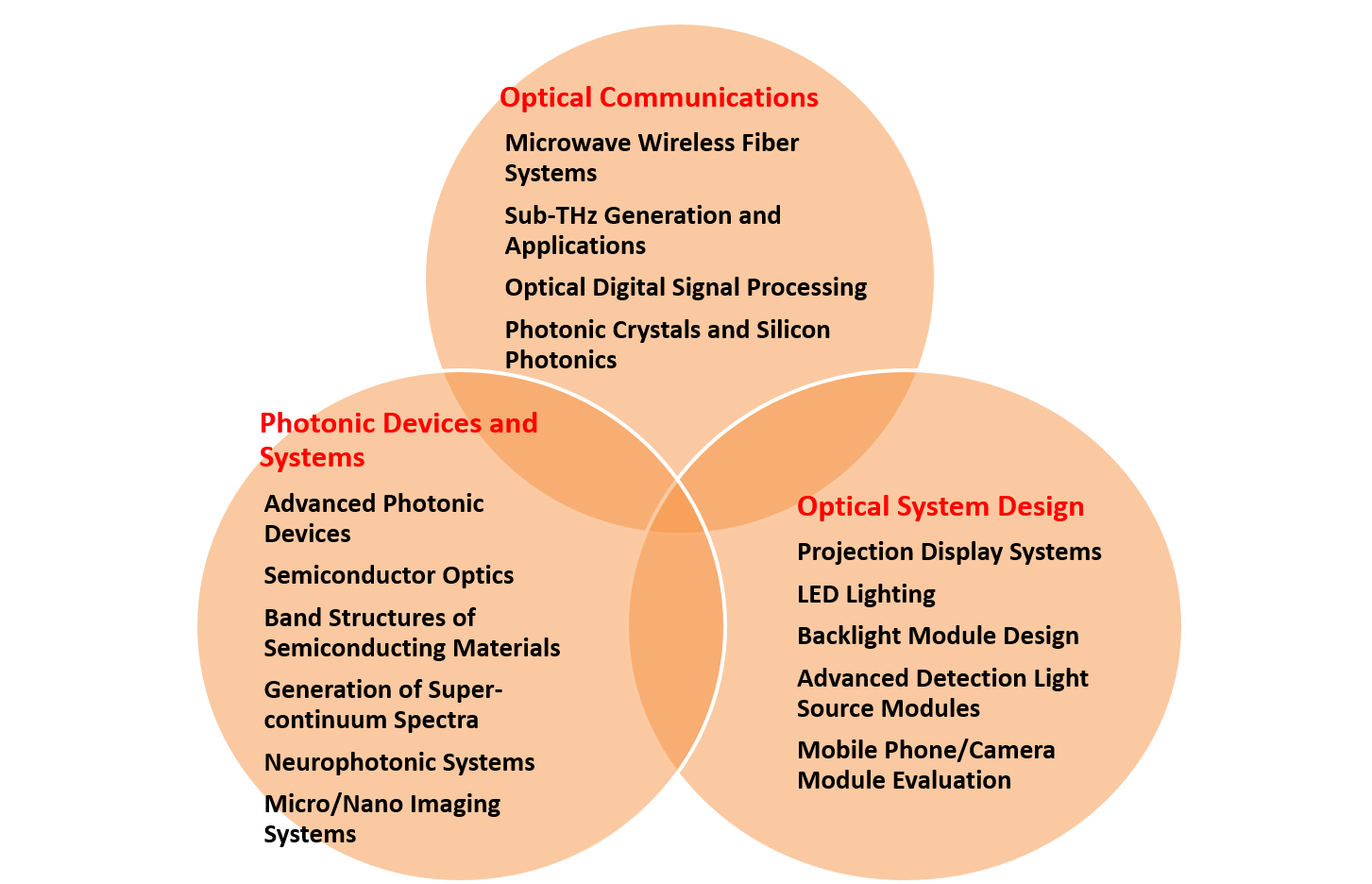Current Status
The Institute of Photonic System was founded in 2009. The ultimate mission is to train the students to become competent professionals at the level of the Master’s degree and beyond, who specialize in photonic systems, for the insufficient R&D human resources highly demanded by the current and future relevant industry and academia. The Institute aims to excel by the following strategies:
1. To foster young talents with a strong basic and applied science background in photonic systems, the graduate students are provided with solid training through the common core course (i.e., Electro-Optics) as well as two course branches—advanced and applied courses. Many opportunities are also available for the students enrolled in the program to obtain interdisciplinary photonics education in order for them to become photonics professionals and leaders of the future with a global vision.
2. The Institute is dedicated to the promotion of collaboration with industry, establishment of core technology of photonic devices and systems, and nurture of R&D elite highly needed for the optoelectronic devices and systems industries.
3. The Institute includes a full professor of the Department of Electrical Engineering, University of California at Los Angles, and the Chief Executive Officer of Southern Region Campus of Industry Technology Research Institute as adjunct faculty members. This strategy strengthens and enriches the faculty for cross-disciplinary integration and increases opportunities of industry-academic cooperation.
4. The Institute sets goals to carry out advanced and distinct photonics studies in collaboration with nearby research institutions including Southern Region Campus of Industry Technology Research Institute, Tainan Service Division of the National Nano Device Laboratories, Tainan Service Division of National Center for High-performance Computing, Southern Campus of Academia Sinica (under plan), and companies located in Southern Taiwan Science Park. In addition, our faculty members are devoted to research in biophotonic systems and applications in close collaboration with domestic hospitals such as Chi Mei Hospital, Cheng Gung Memorial Hospitals, and Tzu Chi Hospitals.
The photonic system faculty currently comprises five full-time members, one joint-appointment professor, and two adjunct professors. Every year the Institute admits 30 graduate students to enter the M.S. program through both applications and entrance examinations. In the academic year of 2014–2015, the available number of individuals for admission to the Ph.D. program is six.
Features
The research field is classified into three featured research domains: 1. Optical communications; 2. Photonic devices and systems; 3. Optical system design. Each focus domain is composed of several academic and industry-academic co-op research areas as shown in the figure. The closely related research laboratories managed by the current full-time faculty include Microwave Photonics Laboratory (Jin-Ting LIN, CM228), Photonics and Semiconductor Laboratory (Zu-Po YANG, CM312), Optical Design Laboratory (Jui-Wen PAN, CM335), Novel Photonic Devices Laboratory (Chien-Chung LIN, CM336), and Micro/Nano Imaging Systems Laboratory (Po-Sheng HU, CM338). Besides, Dr. Jia-Ming LIU, adjunct chair professor, runs Neurophotonics Laboratory (CM515) on the fifth floor of Chi-Mei Building.
The ChiMei–NCTU Joint Lab for Biomedical Research are operated by the photonic system faculty as well as by the imaging and biomedical photonics faculty. The Joint Lab is heavily involved with research projects handled by the Biomedical Electronics Translational Research Center (located on Kuangfu Campus, Hsinchu) and has been aggressively working on cooperative projects sponsored by ChiMei Medical Center, etc. since the Institute was established.
The students are allowedto find their thesis advisors affiliated with the other institutes at the College and get enrolled in classes offered by the other programs within the College for their graduate credits. This flexibility provides a unique opportunity for the students to gain interdisciplinary knowledge.
As for the curriculum design, the photonic system program offers about seven advanced courses and seven applied photonics courses each academic year in addition to the common (or college-wide) required core course Electro-Optics. These courses are designed for the students registered in this graduate program and also for those from the other institutes.